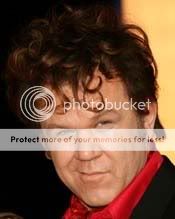Wings of wax
Bluelighter
- Joined
- Oct 1, 2007
- Messages
- 139
Hi,
I am trying to make sense of what happens to the body during and following sex. Recently I found a bunch of studies that surprised me quite a bit. Admittedly, I found them on a website that clearly has a mission (advocating non-orgasmic sex), but never the less, the science seems solid.
These studies center on what happens during sex:
http://www.reuniting.info/science/research/sexual_hangover#testosterone
The basic idea is that orgasms triggers the reward systems in the brain (duh), but that this has consequences that aren't transparent, and go beyond just sex.
From a male point of view, orgasms have some negative sides to it that noone ever told me about. It's all related to this hormone called prolactin, that is released as a reward hormone in both men and women after orgasm. This hormone has many properties.
In men, as far as I understand it, it lowers testosterone levels in the days following orgasm. One of the studies suggests that testosterone fluctuates in a 14-day period, going up to 150% following a week-long abstinence.
I hope someone will read the studies and give their opinion on this. If sexual abstinence is a way to increased testosterone levels, I would like to know.
Any thoughts will be appreciated!
I am trying to make sense of what happens to the body during and following sex. Recently I found a bunch of studies that surprised me quite a bit. Admittedly, I found them on a website that clearly has a mission (advocating non-orgasmic sex), but never the less, the science seems solid.
These studies center on what happens during sex:
http://www.reuniting.info/science/research/sexual_hangover#testosterone
The basic idea is that orgasms triggers the reward systems in the brain (duh), but that this has consequences that aren't transparent, and go beyond just sex.
From a male point of view, orgasms have some negative sides to it that noone ever told me about. It's all related to this hormone called prolactin, that is released as a reward hormone in both men and women after orgasm. This hormone has many properties.
In men, as far as I understand it, it lowers testosterone levels in the days following orgasm. One of the studies suggests that testosterone fluctuates in a 14-day period, going up to 150% following a week-long abstinence.
I hope someone will read the studies and give their opinion on this. If sexual abstinence is a way to increased testosterone levels, I would like to know.
Any thoughts will be appreciated!





